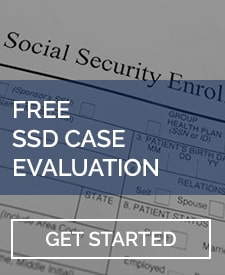Integrated Analysis of Multiple Sclerosis and its Relation to Social Security Disability Benefits
Multiple sclerosis (MS) is an inflammatory ailment that targets the central nervous system, obstructing the information flow within the brain and between the brain and body. Understanding the chances of getting disability benefits with MS is pivotal as this condition occurs when the protective sheath surrounding nerves deteriorates, hindering the transmission of nerve signals between the brain and spinal cord.
Etiology of MS
Understanding the cause and risk factors associated with MS is pivotal for its prevention and management.
Geographical Factors:
Intriguingly, there’s a higher prevalence of MS among individuals residing far from the equator. This hints at the potential protective effect of natural vitamin D against immune-mediated diseases.
Smoking and MS:
Smoking exacerbates the risk of developing MS. Quitting smoking, however, has shown to decelerate the progression of the condition.
Genetic Predisposition:
Although MS isn’t strictly hereditary, having a parent with MS can predispose an individual to it.
Symptoms and Diagnosis of MS:
Symptoms of MS:
The manifestation of MS is diverse, usually appearing between the ages of 20 and 40. Symptomatic manifestations can range from muscle spasms, tremors, vision issues, mental symptoms like depression and fatigue, to speech challenges.
Diagnosis of MS:
Given the overlap of its symptoms with other ailments, diagnosing MS is arduous and primarily entails ruling out other potential conditions.

MS Social Security Disability and SSI Disability
For those wondering about the specifics of “MS social security disability” or “MS SSI disability,” it’s essential to note the differences. While both are managed by the SSA, SSD benefits are based on a person’s previous work history and the amount they’ve paid into Social Security, while SSI benefits are for those with limited income and resources, irrespective of work history.
Multiple Sclerosis Disability Living Allowance and Benefits
In certain regions, there is also what’s known as the “multiple sclerosis disability living allowance.” This is a benefit provided to help with the extra costs faced by people with disabilities. It’s essential to consult local guidelines to see if this allowance is available.
MS Disability Amount: How Much Can One Get?
The “MS disability amount,” or the sum provided as disability benefits, varies based on various factors, including where one lives, work history, and the severity of the condition. However, all aim to provide some financial support to those rendered unable to work due to their MS symptoms.
I Have MS: Can I Get Disability?
For those pondering, “I have MS; can I get disability?” – the path starts with understanding the qualification criteria. Typically, one either meets the specific SSA listing for MS (Listing 11.09) or proves that their functional limitations prevent them from working at any level.

Lawyer for Disabling Conditions: Multiple Sclerosis
Given the complexities involved in the application process, many choose to seek the services of a Social Security Disability Lawyer specializing in disabling conditions, including multiple sclerosis. A “lawyer for disabling conditions multiple sclerosis” can guide applicants through the often intricate process, ensuring all documentation is accurate and improving the chances of approval.
How Do I Get Approved for Disability for MS?
To get approved for disability for MS, one must provide extensive medical documentation proving the severity of their condition and how it impedes their ability to work. This often involves medical records, doctors’ testimonies, and sometimes even personal accounts of daily struggles.
MS Disability Pay: What to Expect
Once approved, many wonder about “MS disability pay.” This refers to the monthly benefit amount one receives. The sum can vary based on several factors, including one’s previous earnings and the program they’re approved for (SSD or SSI).
In conclusion, MS is not only a physically challenging condition but also poses various socio-economic challenges. However, the provision of disability benefits offers a ray of hope, ensuring that those with MS have some financial support to lean on. Whether you’re in the early stages of considering applying or deep in the process, understanding the intricacies of MS-related disability benefits is crucial. And if ever in doubt, seeking the expertise of a specialized lawyer can pave the way for a smoother application process.
MS Disability Amount and Its Determinants
The exact MS disability amount or the multiple sclerosis disability benefits one might receive is contingent on several factors. These might include the region you live in, previous earnings, and the extent of the disability.
If you’re considering applying for disability due to MS, seeking assistance can be invaluable. Navigating the world of disability claims can be intricate, but with the right guidance, you can ensure that you receive the support you deserve. From understanding if MS qualifies for disability in your area to determining the potential MS disability pay you might be eligible for, taking an informed and proactive approach can be pivotal.
In conclusion, while MS is undeniably a life-changing diagnosis, support in the form of disability benefits can offer a financial cushion. Recognizing the pathways to these benefits, the criteria for acceptance, and the potential avenues for appeal can help MS sufferers access the resources they need during challenging times.
Frequently Asked Questions
Is MS a disability recognized by the SSA?
Yes, the SSA acknowledges MS as a condition that can qualify for disability benefits.
How can smoking impact MS?
Smoking exacerbates the risk of developing MS, but quitting can decelerate the progression of the condition.
What are the chief pathways to qualify for SSD benefits?
One can qualify by meeting the Multiple Sclerosis Listing 11.09 or based on their Residual Functional Capacity (RFC).
How beneficial is hiring an attorney for the SSD application process?
An attorney can provide guidance, collect records, answer questions about the program, and ensure the best chance of approval.




